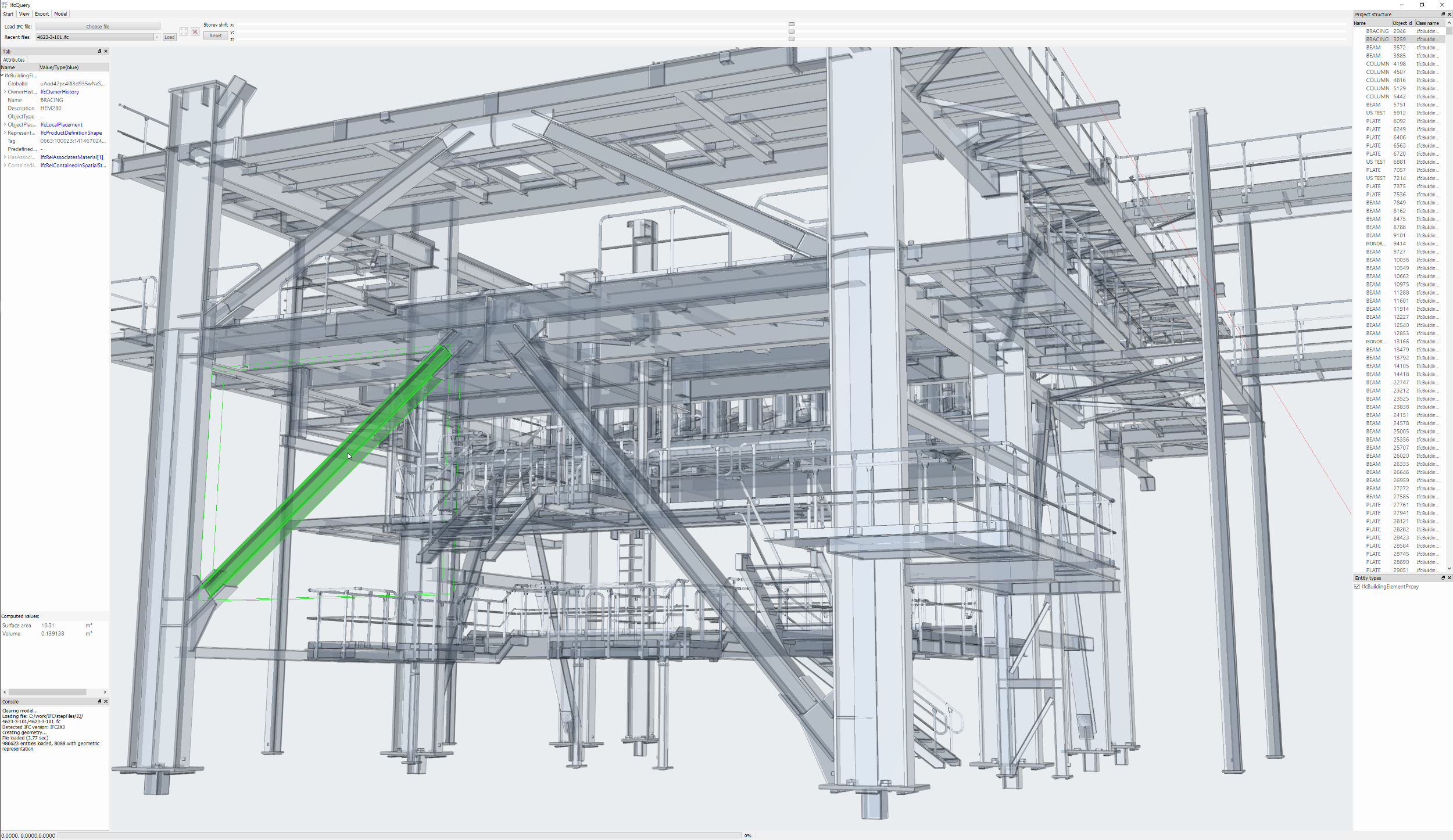IFC++ is an open source IFC implementation for C++. It is very fast, but it has not the lowest possible memory footprint, because it has a complete class model.
Benefits of the complete class model are (among others):
- you can easily instantiate objects and access member variables, for example:
shared_ptr<IfcCartesianPoint> ifcPoint = make_shared<IfcCartesianPoint>();
shared_ptr<IfcPolyLoop> polyLoop = make_shared<IfcPolyLoop>()
polyLoop->m_Polygon.push_back(ifcPoint);- you can navigate the model easily by accessing member variables directly, including inverse attributes:
shared_ptr<IfcBuildingStorey> currentBuildingStorey = ...;
for (auto it : currentBuildingStorey->m_IsDecomposedBy_inverse)
{
shared_ptr<IfcRelAggregates> relAggregates(it);
for (auto it2 : relAggregates->m_RelatedObjects)
{
shared_ptr<IfcObjectDefinition> child_obj = (it2);
shared_ptr<IfcWallStandardCase> wall = dynamic_pointer_cast<IfcWallStandardCase>(child_obj);
if(wall)
{
// do something with wall
}
}
}Inverse attribute pointers are automatically generated by IFC++ for all object references in the model.
- casting is possible for all types:
shared_ptr<IfcPropertySet> pset = dynamic_pointer_cast<IfcPropertySet>(relatingPropertyDefinition);- Professional support is available for bug fixing or custom implementations on www.ifcquery.com.
The project is published under the MIT license, which means that you can use it for any purpose, personal or commercial. There is no obligation to publish your source code.
Open source example application for Qt here available: https://github.com/ifcquery/ifcplusplus/releases
https://github.com/ifcquery/ifcplusplus/wiki/Build-instructions
980 000 entities loaded, 8000 with geometric representation. Loaded in < 4 sec. on a standard PC, including geometry.
